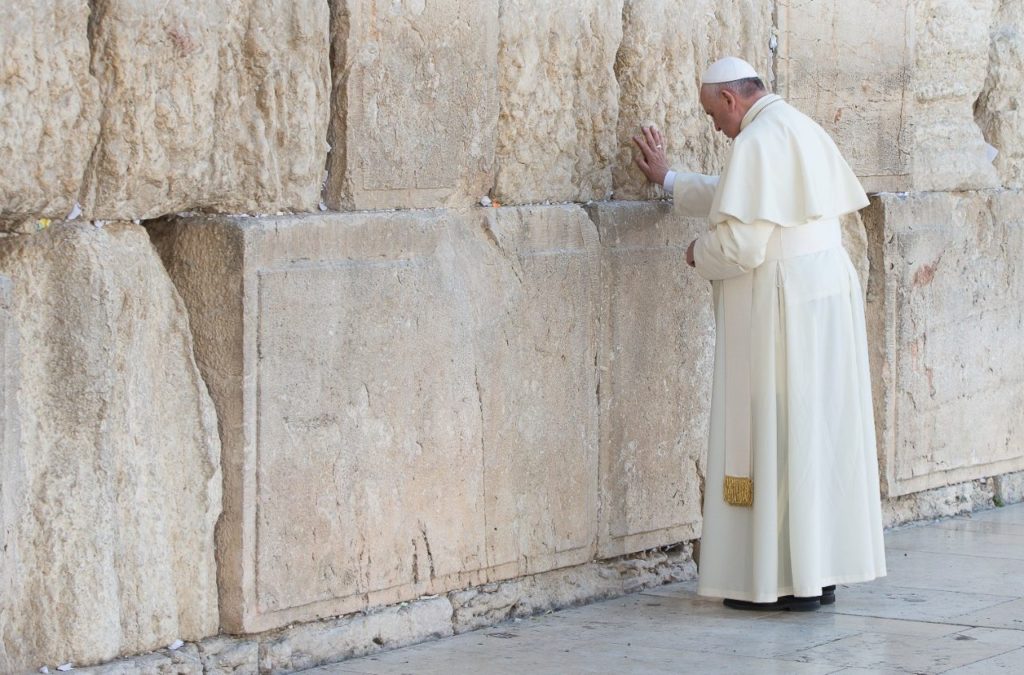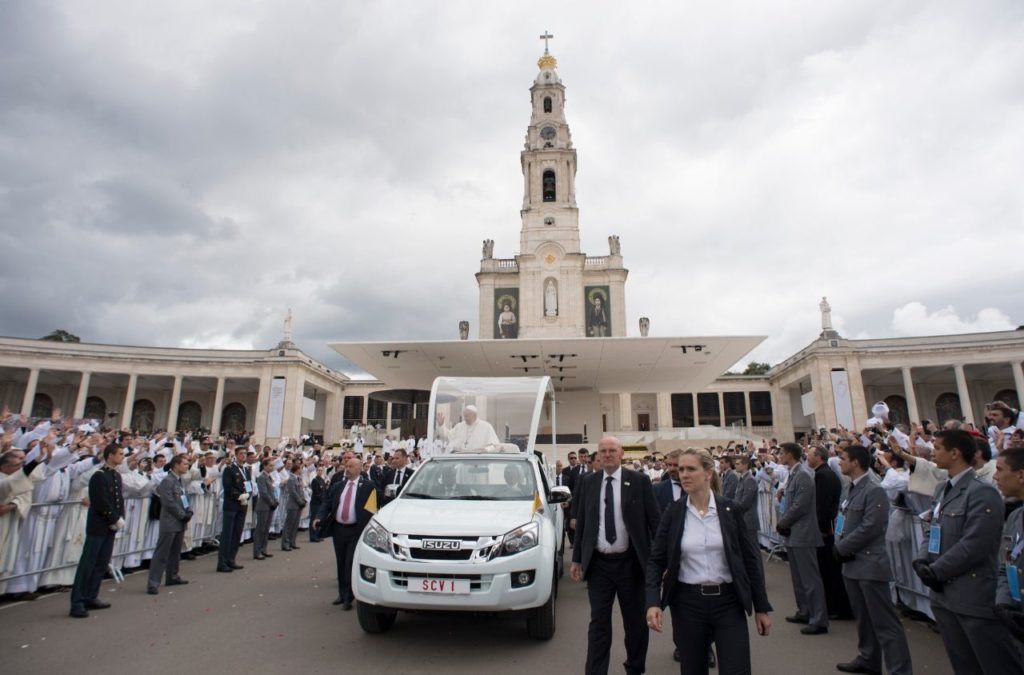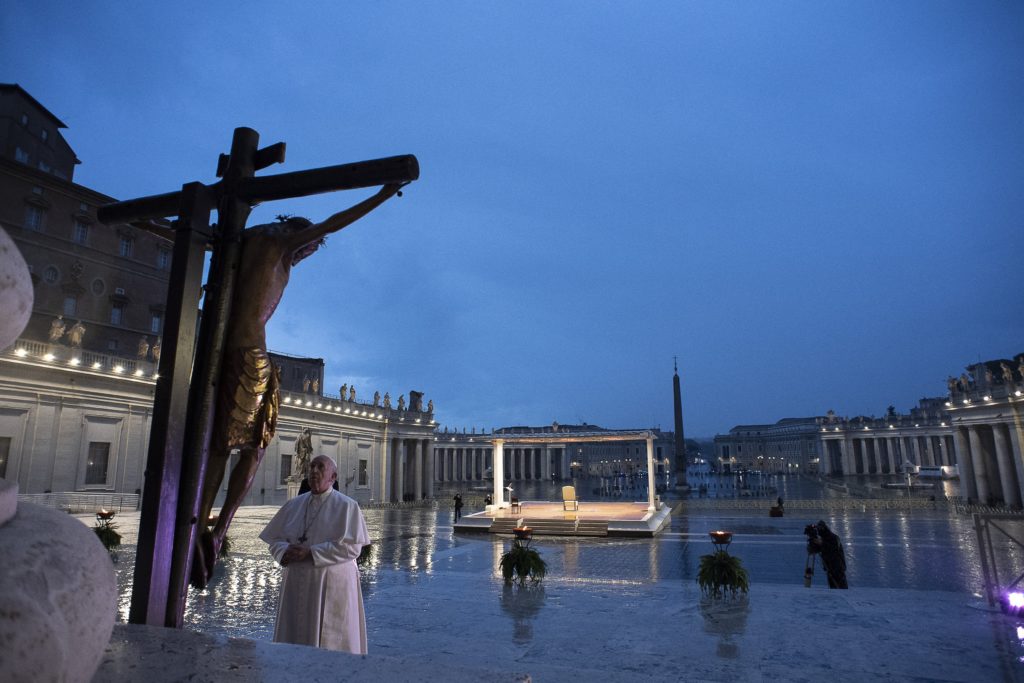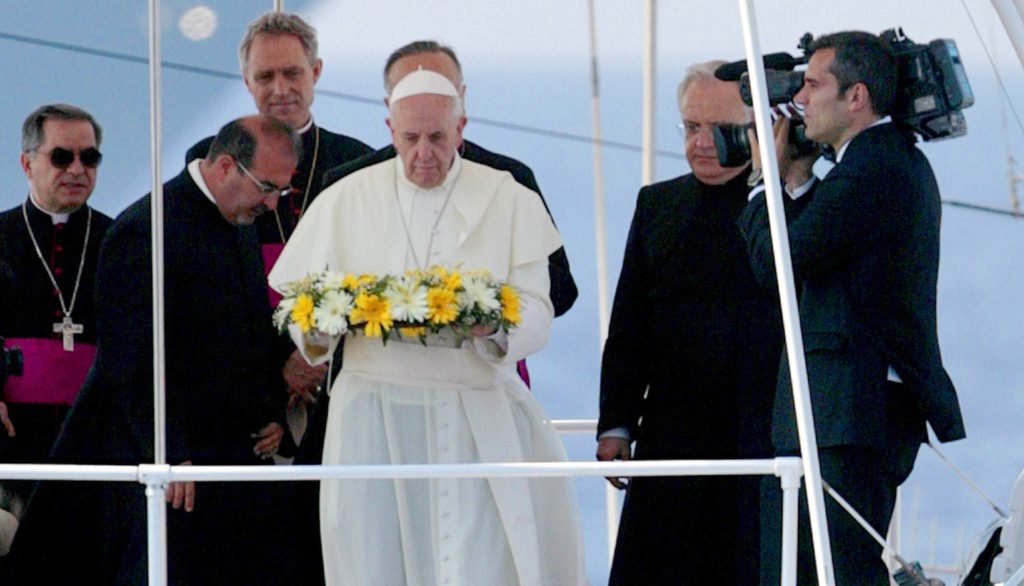Exactly eight years ago, on the afternoon of March 13, 2013, Cardinal Jorge Mario Bergoglio looked out from the Central Loggia of St. Peter's Basilica in the Vatican for his first apostolic blessing "Urbi et Orbi." From there began Pope Francis' journey in the service of the universal Church: "a journey of fraternity, of love, of trust among us."
It is not easy, on each anniversary, to make an exhaustive and illustrative summary of the most important "novelties" represented by the event being commemorated or the character being celebrated.
This is even more true in the case of the last pontificate, which voluntarily or involuntarily was characterized by a series of vicissitudes not always and not only related to the "Bergoglio character," but also to the general context in which his mission has developed, both at the ecclesial and international levels. Certainly, it has been - and we hope it will be - a very active ministry, rich in initiatives.
And yet, I think there are two aspects that should be highlighted in order to emphasize how complex it is today, from a narrative point of view, to "isolate" the most characteristic moments of this early years experience.
On the one hand, we must consider the era of media overexposure in which we live, which from the beginning has generated around the figure of the Pope an infinite amount of information and data that flow daily in an unstoppable vortex and in all latitudes, generating an evident overload that in some cases can also be harmful. On the other hand, the Covid-19 pandemic has complicated things, since in the last year it has recalibrated our priorities and has put in the shade other interests for things not necessarily considered "vital", like a kind of passion for bitter, nostalgic memories.
That said, since we do not have the expertise to offer a historiographical synthesis of these last years of the Church's life under the leadership of Pope Francis, we thought it more interesting to select "eight postcards," eight images that in our judgment are representative of each of the last years of the ministry of the Bishop of Rome. It is a totally arbitrary choice, we confess, but they are likely to be snapshots that are probably alive in the hearts of the faithful.
2013 - Visit to Lampedusa, the island of migrants dead at sea.
The first snapshot that characterized the progress of Pope Francis as pastor of the People of God and pilgrim of the existential peripheries will remain that of his unusual trip to the island of Lampedusa, in southern Italy, a few months after his election.
It was the first real departure from the confines of the Vatican, but also the most dramatic and moving. From the tomb-island of hundreds and hundreds of emigrants whose names we will never know, there arose that strong cry to the conscience of all "so that what happened will not happen again". Later we know that, unfortunately, this was not the case at all, but the Pontiff's appeal remains and continues to be a warning against indifference.
2014 - Journey to the Holy Land
The first truly great pilgrimage of the pontificate was perhaps the Apostolic Journey to the Holy Land in May 2014, on the occasion of the 50th anniversary of the meeting in Jerusalem between St. Paul VI and Patriarch Athenagoras. 16 speeches in three days, and the moving visit to the Yad Vashem Memorial, with the condemnation in unequivocal terms of terrorism, which "is evil in its origin and is evil in its results." An evil that is born of hatred and that destroys, which led the Holy Father to express his shame for the profanation that man has managed to make towards the main work of God's creation, himself.

2015 - Laudato si'
2015 is the year of the second Encyclical of Pope Francis, Laudato Si', dedicated to the care of the common home, born of the awareness of putting an end to the irresponsible use and abuse of the goods that God has entrusted to us through creation. A path of reflection that has already taken up the calls for "global ecological conversion" of St. John Paul II and the concern for the wounds caused by our irresponsible behavior suggested by Benedict XVI.
The key insight provided by the current Pontiff will be that "everything is connected," which calls for our responsibility to recognize that all our unbalanced behaviors inevitably have consequences in the lives of all our other brothers and sisters. And the pandemic we are experiencing is here to prove it to us.
2016 - The Jubilee of Mercy
On the other hand, 2016 was the Year of the first Jubilee extended worldwide, the Jubilee of Mercy, with the opening of the Holy Doors in all the dioceses, on all the frontiers of the earth, beginning with the symbolic one of Bangui, in the Central African Republic. This was also a choice and an unequivocal message: God's mercy knows no limits, and it acts with even greater reason in those events - and in those hearts - that have had to be overcome.
It will be a very special year, with more than 21 million pilgrims arriving in Rome alone. This will give rise to the "Fridays of Mercy" and "Word of God Sunday".
2017 - As a pilgrim in Fatima for his Mother
The presence of the Virgin Mary is a constant feature of the Pontificate. The Pope's visits to the Basilica of St. Mary Major to pay homage to the Salus Populi Romani are emblematic, not by chance the first one made already the day after his election, and then at the beginning and end of each Apostolic Journey abroad.

In 2017, however, Pope Francis went directly to the Shrine of Our Lady of Fatima for the centenary of the Apparitions of the Virgin Mary, and from there he loudly reiterated, "We have a Mother, we have a Mother." He then invited everyone to be in the world "sentinels of the morning" to show the young and beautiful face of the Church, "which shines when she is missionary, welcoming, free, faithful, poor in means and rich in love."
2018 - The agreement with China
After years of attempts and much suffering, on September 22, 2018, the Interim Agreement between the Holy See and the People's Republic of China on the appointment of bishops was signed in Beijing, effectively ending the existence of a "double Church" in China.
In a letter addressed to all the people of the Asian country and to the universal Church, Pope Francis recalled first of all the spiritual treasure left by the painful experiences of those who have suffered over the years to bear witness to their faith. But he gave thanks for the glimpse of complete unity and a wider and freer evangelization of those lands initiated by the Accord. After two years, the document was renewed for a further two-year period until 2022.
2019 - The Abuse Summit
Not all postcards are sometimes beautiful; some can also portray painful wounds as in the case of the sad story of abuse of minors in the Church. A process of awareness that has been going on for many years and that has shown the crudeness of situations in which there has been a lack of transparency and accountability at many levels.
A crudeness that Pope Francis has not been afraid to take to the extreme, making it a priority to fight what he has repeatedly defined as a cancer. In 2019, a broad summit is finally held in which the bishops sit down to listen to the testimonies of people who have suffered abuse. From there, many other initiatives were born, including legislative ones, to curb complicity and non-compliance and prioritize attention to victims.
2020: The loneliness of the pandemic
The last postcard of these first eight years of his pontificate is also quite sad, linked to the health emergency caused by the Covid-19 pandemic, whose solution is not yet in sight. It portrays Pope Francis alone, in a deserted St. Peter's Square, wet with rain. It was a spiritually powerful moment, in which we prayed for the end of this tragedy that has already caused more than two and a half million deaths.

What remains of that night is the prayer to the Lord "so that he will not leave us at the mercy of the storm" and the awareness that "no one is saved alone". Faith and hope, which from that moment will lead the Holy Father to carry out a series of initiatives of closeness to the People of God weakened by fear and loneliness. It is still necessary to take up these words and remind ourselves today "to embrace the Lord in order to embrace hope".
2021 - The journey of fraternity
As of 2021 we cannot say much, we are still at the beginning, hence the 8 postcards. But it will be interesting to be attentive to the recent trip to Iraq, made by the Pope as a pilgrim of fraternity to the land of Abraham, where it all began. A country that after the tragedy of so many wars and hatreds is still to be rebuilt. Like our lives. With the closeness of the Pope and the Church.









